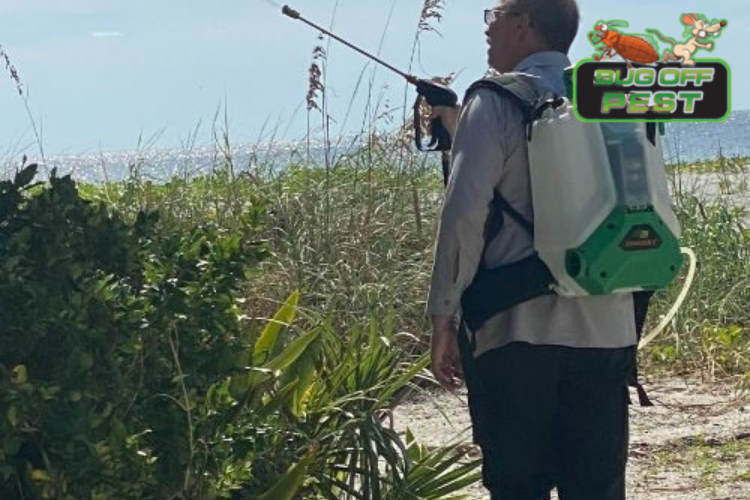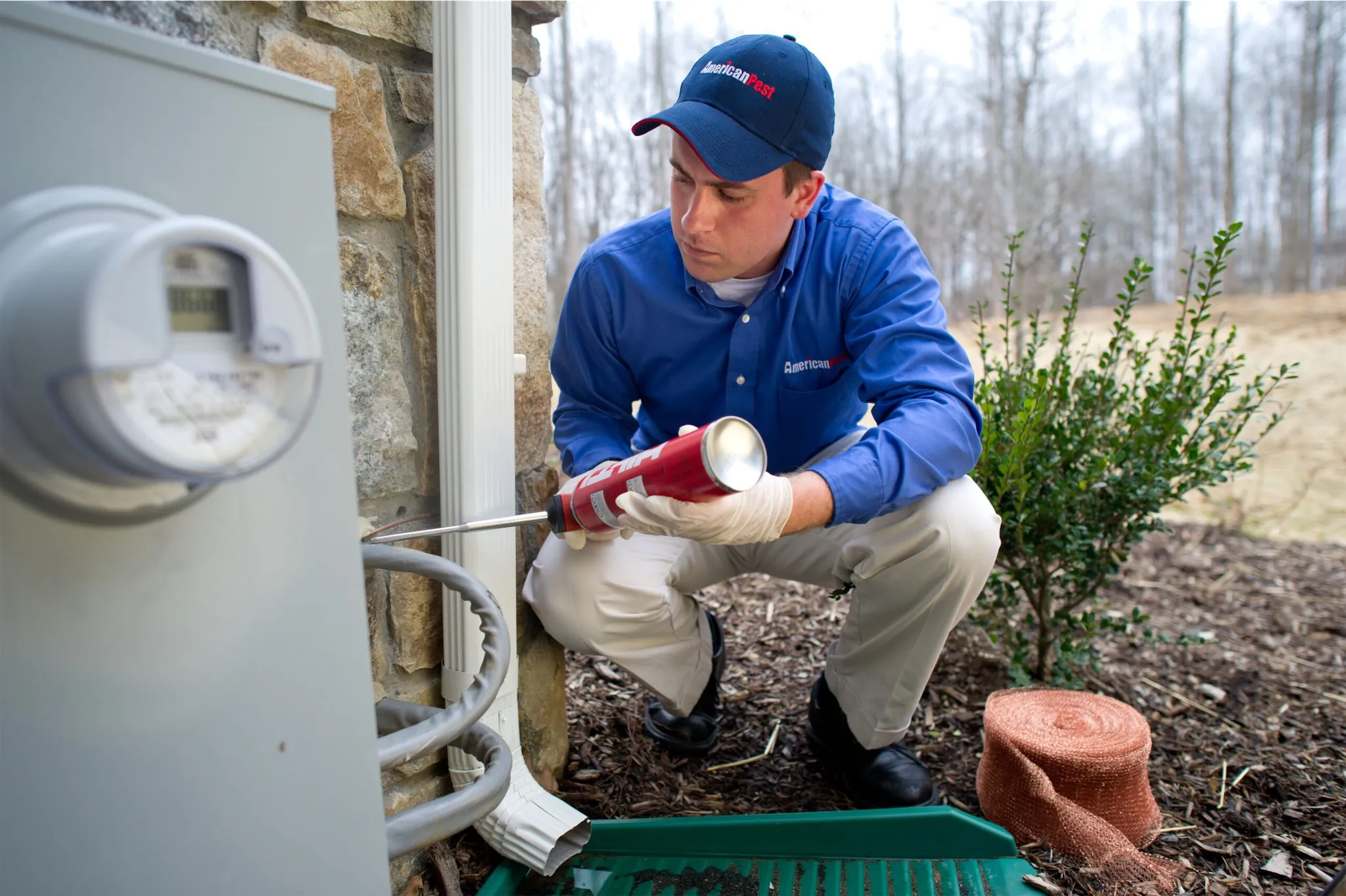Discover the Significance of Pest Control in Preserving a Healthy Environment and Therapy Methods

The Function of Pests in Ecological Communities
Pests, typically viewed only as problems, play a complex duty in environments that is vital for preserving eco-friendly balance. They add considerably to numerous eco-friendly processes, consisting of pollination, nutrient cycling, and bug control. For instance, lots of insect varieties, such as bees and butterflies, are necessary pollinators for a vast array of plants, which subsequently supports biodiversity and food production.
Furthermore, bugs act as prey for numerous predators, producing a critical link in food webs. This interdependence makes sure the survival of numerous species and assists regulate populations within ecological communities (Termite treatment Port Charlotte). In addition, decomposer parasites, such as specific beetles and fungis, are crucial in damaging down natural issue, hence improving dirt and facilitating nutrient recycling.
Alternatively, while parasites can be beneficial, their overpopulation or invasion right into non-native settings may interrupt these eco-friendly functions. This complexity highlights the value of understanding pest characteristics, as reliable pest administration strategies have to think about both their ecological roles and prospective effect on human activities. Stabilizing pest visibility while minimizing harm is crucial for preserving the stability of environments and guaranteeing agricultural performance.
Health Threats Related To Bugs
The existence of bugs in different environments expands beyond their eco-friendly functions, as they also pose considerable health risks to pets and people. Numerous pests, consisting of rodents, bloodsuckers, and bugs, are carriers of illness that can have serious health and wellness implications. Rats are known to transfer hantavirus and leptospirosis, both of which can lead to extreme respiratory and kidney concerns, respectively.
Bugs such as mosquitoes and ticks are infamous for spreading out vector-borne diseases like malaria, dengue high temperature, and Lyme condition. These diseases can lead to high morbidity and death rates, specifically in vulnerable populations. Furthermore, parasites like cockroaches and insects can intensify allergic reactions and bronchial asthma, adding to respiratory issues in individuals, specifically those with pre-existing problems.
In addition, the presence of insects can cause emotional stress and discomfort, impacting general wellness. Contamination of food and surfaces by bug droppings and continues to be can bring about foodborne illnesses, highlighting the importance of maintaining sanitary conditions. Comprehending the health and wellness dangers associated with insects is vital in identifying the need of efficient insect management strategies to safeguard animal and human health and wellness.

Advantages of Effective Insect Control
Effective pest control is crucial for preserving a safe and healthy and balanced atmosphere, as it regularly reduces the numerous threats connected with insect problems. One of the main benefits of reliable bug administration is the reduction of wellness dangers.
Additionally, reliable insect control safeguards residential or commercial property and frameworks from damages. Many parasites, like termites and carpenter ants, can cause considerable structural damages that may call for expensive repairs. By proactively handling these infestations, home owners and services can shield their financial investments.
Another considerable benefit is the enhancement of overall lifestyle. A pest-free setting contributes to mental wellness and lowers tension related to problems. Additionally, efficient parasite control fosters a safer atmosphere for animals and kids, making sure that homes continue to be sanctuaries totally free from disease-causing microorganisms and harmful chemicals.
Typical Insect Control Methods

In the world of bug management, different techniques are used to deal with infestations properly. These methods can be broadly classified into three major techniques: cultural, mechanical, and chemical controls.
Social control includes changing methods to reduce bug establishment, recreation, and survival. This might consist of crop turning, appropriate sanitation, and habitat adjustment, which collectively develop an environment much less conducive to pest spreading.
Mechanical control utilizes physical approaches to eliminate insects (Termite treatment Port Charlotte). Methods such as catches, obstacles, and vacuums are typically utilized to straight get rid of parasites from a location. This approach is particularly effective for handling rodents and bugs without using damaging chemicals
Chemical control entails the application of pesticides to manage insects. These substances can be categorized into herbicides, pesticides, and fungicides, each targeting particular sorts of insects. It is important to utilize these chemicals sensibly, adhering to safety guidelines and laws to minimize possible injury to non-target varieties and the atmosphere.
Each bug control method has its advantages and limitations, and commonly, an integrated method incorporating numerous techniques produces the very best lead to find out keeping a pest-free atmosphere.
Sustainable Parasite Administration Practices
Sustainable bug administration practices incorporate a series of techniques designed to decrease environmental impact while properly managing pest populaces. These practices discover here focus on making use of environmentally pleasant methods over chemical pesticides, therefore decreasing the risk of damage to non-target species, consisting of useful pests, wild animals, and people.
Integrated Pest Monitoring (IPM) is a cornerstone of lasting practices, incorporating organic, cultural, mechanical, and chemical techniques to manage bugs. For instance, organic control involves introducing all-natural predators or parasites to subdue insect populaces. Cultural methods, such as plant rotation and polyculture, interrupt pest life process and enhance environment strength.
Mechanical techniques, such as obstacles or catches, can efficiently protect against pest gain access to without chemical treatment. In addition, maintaining healthy environments through appropriate dirt monitoring, plant health, and biodiversity can naturally reduce bug concerns.
Education and learning and awareness are vital components, equipping areas and people to identify parasite threats early and implement safety nets. Termite treatment Port Charlotte. By promoting an alternative technique that balances pest control with ecological integrity, sustainable pest management practices not just protect frameworks and plants yet also add to a much healthier atmosphere for future generations
Final Thought

Comprehending the health threats connected with insects is crucial in identifying the requirement of effective parasite administration techniques to safeguard animal and human health.
Efficient insect control is essential for keeping a risk-free and healthy and balanced atmosphere, as it consistently minimizes the various threats connected with pest infestations.Integrated Parasite Management (IPM) is a keystone of sustainable techniques, combining organic, cultural, mechanical, and chemical techniques to manage bugs. By understanding the function site web of parasites, acknowledging involved wellness dangers, and using diverse treatment strategies, a sustainable technique to pest management can be achieved. Integrated Insect Monitoring (IPM) emphasizes an alternative technique that alleviates harm to beneficial organisms while properly controlling insect populaces.